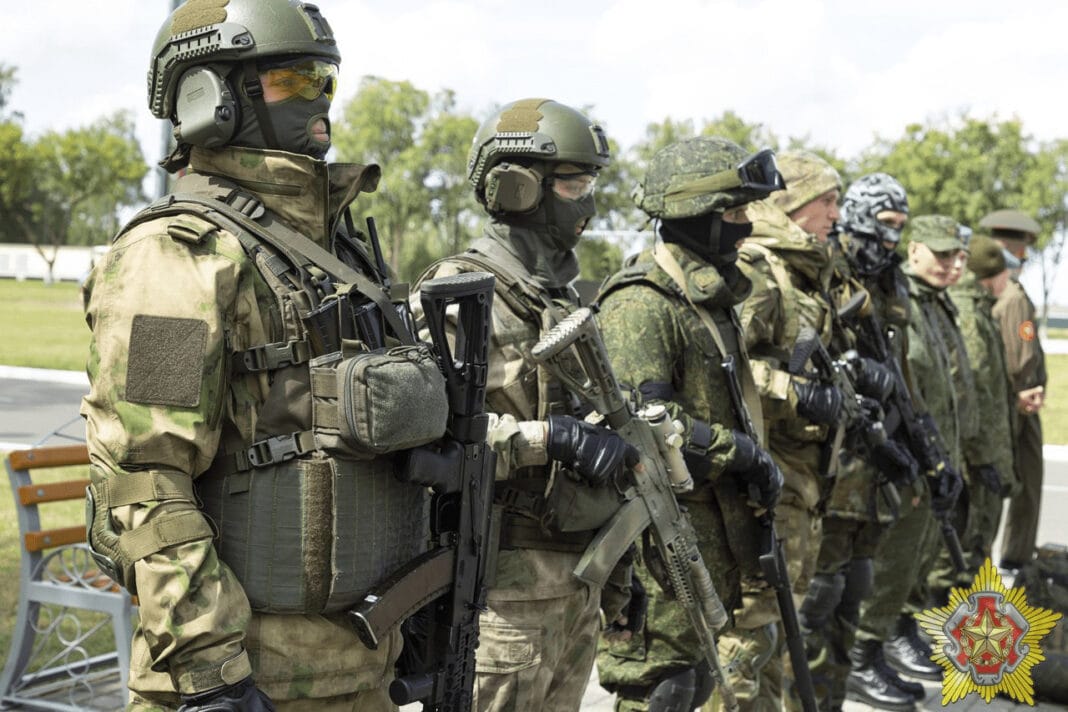Recent weeks have seen an effective Ukrainian offensive and a pressed Russia. More recently the Russian military conducted missile strikes in several Ukrainian cities targeting civilians. Amid the escalation, President Lukashenko announced the establishment of a joint force of Belarusian and Russian troops on Belarusian territory. Russia’s use of Belarus hosting Russian troops is nothing new. What is new, however, is the concentration of Russian personnel in Belarus as well as the discourse used by Lukashenko which points to a more active position compared to previous passiveness.
Moreover, as the Russian strategy of indiscriminate violence intensified in recent weeks, combined with several of its allies urging its citizens to leave Ukraine, a pressed and more unpredictable Russia is evident. The Russian military seems unable to effectively operate due to poor logistics and a supply deficit. A mobilisation on Belarusian territory may then be an attempt at deception, an integral part of Russian warfare, in which Ukraine is forced to allocate personnel to its Northern border. The Russian military is exhausted and the more the pressure rises, the more drastic decisions may come to play.
KJ1: It is highly likely that Russia will continue indiscriminate missile launches targeting civilians in the next 3 months.
- On October 8th Russia appointed General Sergei Surovikin as the new commander for its military operations in Ukraine. Surovikin is known to be the man behind the unconstrained bombing and attacks on civilian targets in Syria [source].
- Since October 10th, Russia destroyed 30% of Ukraine’s energy facilities [source].
- On October 11th Russian allies in the Shanghai Cooperation Organisation, Uzbekistan and Tajikistan, recommended its citizens to leave Ukraine [source; source].
- On October 15th Egypt urged its citizens to leave Ukraine [source].
- On October 16th Serbia closed its embassy in Kyiv due to security reasons [source].
- On October 16th China urged its citizens to leave Ukraine as soon as possible [source].
- According to Ukrainian intelligence, Russia ordered 2400 Shahed 136 “kamikaze drones” from Iran [source].
- Since October 17th Russia used Shahed 136 drones targeting civilians [source].
- According to Ukraine’s general staff, Russia tries to buy ammunition from third parties due to low supplies [source].
- The strategy of terror bombing civilians combined with dropping resources points toward a push for negotiations. However, as there are no indications of Russia peacefully giving up occupied territories, the need to rearm and regroup is prevalent.
KJ2: It is likely that Russia will utilise Belarusian consent to enhance deterrence in the next 3 months.
- In a speech on September 17th Vladimir Putin stated that “If its territorial integrity is threatened Russia will use all the means at its disposal” [source].
- On October 16th, 3 Mig-31 fighters reportedly landed at the airfield in Machulishchy, Belarus. They are claimed to be a modified version of the Mig-31K capable of carrying Kinzhal hypersonic missiles and R-37M ultra-long-range missiles [source].
- On October 15th Russia announced they re-equipped Belarusian Su-25 planes for use of nuclear weapons. Transfers of nuclear-capable Iskander-M ballistic missile systems to Belarus were also mentioned [source].
- On October 18th Russia started to evacuate civilians from the occupied Kherson region [source]. The Russian commander Sergei Surovikin revealed that the Russian troops are struggling but underlined that they will not rule out any “difficult decisions” [source].
KJ3: It is likely that Belarus will remain militarily passive in the next 3 months.
- President Vladimir Putin is claimed to be an authority on Russian deception, Maskirovka, historically an integral part of Russian warfare [source]. Mobilising Belarusian troops would force Ukraine to regroup troops from the highly concentrated presence in Russian-occupied territories.
- On October 10th President Lukashenko announced a joint Belarus-Russia military group intended to counter a perceived threat from Ukraine [source]. Even though signalling a more active position in the Russia-Ukraine war, domestic opinion complicates such a move [source].
- On October 16th Belarus announced they will host 9000 Russian troops along the border [source].
- The Belarusian army is claimed to be relatively weak and unmotivated to fight in Ukraine [source].
Intelligence Cut-Off date: 28 October 2022

